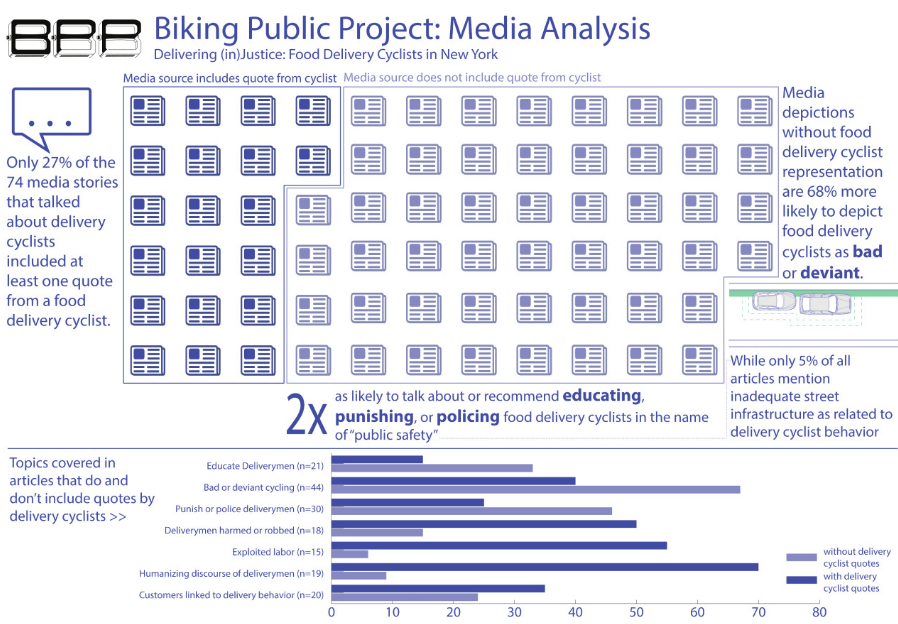NYC's mostly-immigrant food delivery cyclists don't have it easy, working on car-centric streets through all sorts of weather, all while under pressure to make their deliveries as quickly as possible.
But media coverage of delivery cyclists tends to dehumanize them, failing to convey their perspective or consider the difficult working conditions they contend with.
That's the conclusion of a report from the Biking Public Project [PDF]. The authors identified 74 stories about delivery cyclists published in NYC newspapers and online outlets (including Streetsblog) between 2004 and 2014, and found that only 27 percent included at least one quote from a food delivery person.
The result is that media tend to portray delivery cyclists as "foreigners without documents" who bike unsafely and flout the law, the authors argue. Their analysis found that stories that failed to present the point of view of delivery cyclists were 68 percent more likely to portray delivery cyclists as "bad or deviant."
Take, for example, a 2010 column from the New York Post's Steve Cuozzo about delivery cyclists on the Upper West Side:
Good luck to Community Board 7, which has the audacity to want bicycle deliverymen to wear proper ID and, God forbid, obey traffic laws. Upper West Side residents tired of the terror will likely have to live with it, even if it means limping from injuries caused by careless, sociopathic cyclists.
Words like "terror," "careless," and "sociopathic" serve to dehumanize delivery cyclists, minimizing their place in public discussions of bike safety, despite the fact that they spend day after day negotiating the dangers of NYC's streets. Delivery cyclists are routinely targeted by NYPD ticket stings in neighborhoods like the Upper East Side where residents depend on their services but also castigate them at public meetings about cycling or bike infrastructure.
By listening to delivery cyclists "who ride up to 12 hours a day," the authors write, everyone can benefit from their "expert, intimate knowledge of our inadequate and unjust streets."






